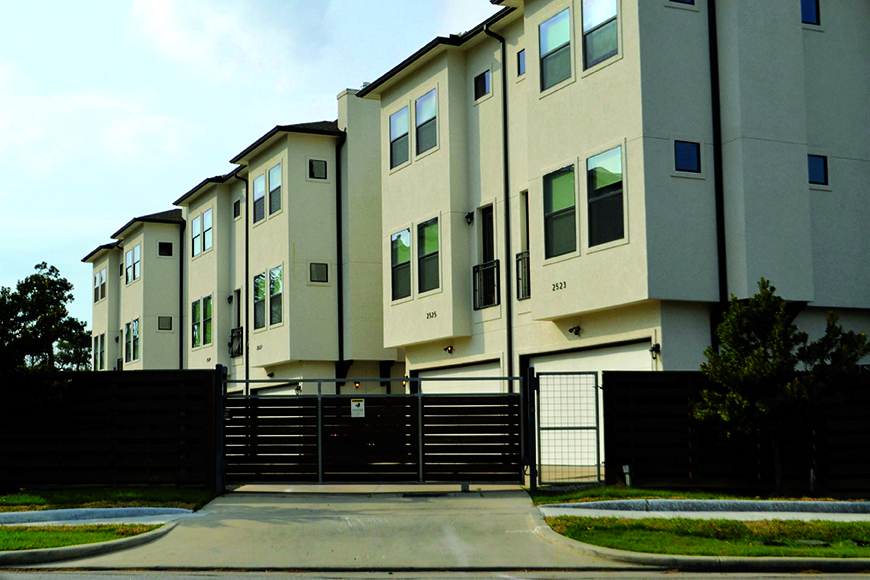Finding housing is a significant obstacle anywhere, luckily finding housing in Laramie is easier than in most college towns. Most freshmen begin college life in the residence halls, and then transition to an on-campus apartment or off-campus housing. However, finding a house or apartment is not just finding a place you like and moving in. Signing a lease involves a legal commitment of at least six months, which means when choosing ones apartment a person is committing anywhere from 6 months to the entirety of the their university career. Knowing about the lease agreement as well as your legal rights are just as important as know where you plan on living.
Residence halls, apartments, and houses for rent are the primary options available to most students. Each option has benefits and costs to be considered before signing a lease. There are several questions to ask with any housing option:
-
Is the advertised cost all inclusive? What will the added cost of things like electricity, gas, and water is?
-
What is the laundry situation? Are there hookups in apartment/house for a personal washer and dryer, or do you have to go elsewhere to do your laundry? Are coin operated communal machines in the building? (In some cases a washer and dryer will be included.)
-
How far is this location from campus? Walking distance? Driving distance?
-
If the location is far from campus, how far is it from the closest bus stop?
-
What is the landlords preferred method of rent payment?
Campus Housing
There are two options when choosing to live on-campus, the residence halls or the apartments located on 30th street. The University apartments provide a nice on-campus alternative to dorm life with a variety of options. Students who choose to live in the University apartments have four options for housing units.
Depending on what students need from their living space, the University apartments provide a variety of housing units. From housing directed towards families to housing directed toward graduate students and traditional undergraduate students. Each housing unit has the option of furnished apartments.
Off-Campus Housing
Off-Campus housing provides several more options than on campus, in regards to the location, layout, cost, and general amenities offered. On-campus housing can be very cut and dry with leases, but take into account graduation an allow students to leave when they graduate. Off-campus housing does not provide this luxury, however, rules regarding pets and items allowed in the apartment are not as strictly regulated in off-campus housing.
Houses are also options when living off-campus. On-campus housing provides apartments and townhouse style units. Off-campus housing provides the option of renting or buying a house. Renting or leasing a house makes way for some of the same benefits as leasing an apartment, such as the landlord fixing problems with the unit. Buying a house means that nothing wrong with the unit is reported the landlord, because the owner of the house is responsible for the unit in its entirety.
Leasing
After finding housing unit weather it be an apartment of house for rent, the next step is to sign the lease agreement with your landlord. The lease agreement provides both parties with a documented agreement outlining stipulations, conditions, as well as length of stay. Among these conditions may be that the tenant is not allowed to have pets, or that the tenant must keep lawn and outside appearance of the residence managed.
The lease agreement is a contract that cannot be broken except under certain circumstances usually outlined in the lease. With any housing situation, some form of a contract is involved. Read the contract before signing. Most landlords will have different leases for different apartment, meaning the rules from one rental to the next may be very different. Breaking the rules of the lease agreement weather blatant or the product of claimed ignorance can lead to eviction and even prosecution.
Included in the cost will in most cases be a security deposit paid at the time of the lease signing or in the first month of residence. The cost of the security deposit may vary but is often may be included with cooperation with the landlord.
Landlord’s Rights
The landlord has a right to receive the amount of rent stated in the lease agreement. Landlords also have a right to be paid for any damage caused by the tenants of a housing unit. This fee typically comes out of the safety deposit paid at the beginning of a lease. The cost of cleaning an apartment after a tenant leaves can also be taken from the safety deposit. Before moving out, ask about rules regarding cleaning the housing unit. Information about cleaning may be stated in the lease, but double-checking with the landlord is recommended.
Tenant’s Rights
Tenant’s rights are relatively uniform across the country. The rights students need to be aware of when leasing a housing unit involve the living space quality and causes for eviction.
Tenant’s rights deal more with the quality of the living space. Tenants have a right to safe common areas, as well as a habitable living environment. The standards of what a habitable environment include running water, electricity, and access to the option of having a working phone line, heating, and protect from elements in general.
Tenant’s rights also deal with regulations against discrimination. Landlords cannot discriminate based on race, religion, gender, or physical disability.
Tenants cannot be evicted from their dwelling without cause. The lease agreement exists to ensure tenants will not be evicted without causes. Unpaid rent, illegal activity on the property, damage caused by the tenant, and excessive noises all provide a justifiable cause for eviction. Should a tenant engage in any of these reasons, the landlord may evict the tenant without penalty.
without penalty.
 without penalty.
without penalty.